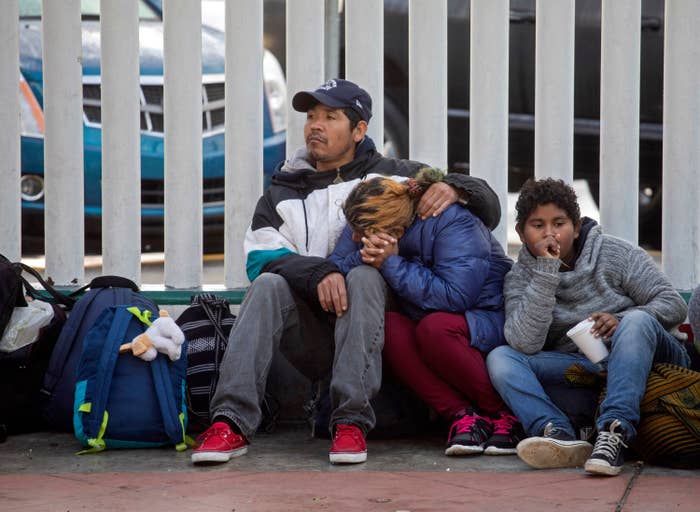
The Trump administration will now deport Mexican nationals — including families — who come to the US southern border seeking asylum to Guatemala, an expansion of a controversial program that will spark outrage among advocates and lawmakers, according to documents obtained by BuzzFeed News.
The program, which was signed in July, was implemented in late November. Emailed guidance was sent to asylum officials across the country in recent days detailing how Mexicans were now to be included in the process.
The plan was initially only focused in El Paso but was later expanded to the Rio Grande Valley, according to documents seen by BuzzFeed News.
A Department of Homeland Security spokesperson confirmed the news on Monday.
"Certain Mexicans seeking humanitarian protections in the United States may now be eligible to be transferred to Guatemala and given the opportunity to seek protection there, under the terms of the Guatemala Asylum Cooperative Agreement," the spokesperson said.
As of late December 2019, 43 asylum-seekers from El Salvador and Honduras have been deported to Guatemala under the agreement, according to government data obtained by BuzzFeed News. The plan was initially limited to adult asylum-seekers but was expanded to families on Dec. 10, according to documentation seen by BuzzFeed News.
The Trump administration says the plan is a key element in its strategy to deter migration at the border and restrict asylum-seekers from entering the US. Advocates and asylum officers previously told BuzzFeed News that the unprecedented plan lacks legality and organization and will lead to immigrants being placed in dangerous circumstances.
In recent months, the administration has been concerned about an increase of Mexican nationals arrested at the border. In December, Ken Cuccinelli, the second in command at the Department of Homeland Security, said that Mexicans could be sent to Guatemala as part of the agreement.
“Mexico is dangerous; Guatemala is even more so. This expansion of the [agreement] continues to prevent legitimate asylum-seekers from having their cases heard by the US and foists them upon the Guatemalan system, which has about a dozen staff,” said one asylum officer, who was not authorized to speak publicly on the matter. “Asylum in the US is now practically available only for people wealthy and privileged enough to get visas, shutting out many of the most vulnerable groups asking for help at our borders.”
The interviews with asylum officers determine if a person is eligible to be deported to Guatemala. The immigrants are told they will be deported to Guatemala and can obtain protections there, instead of in the US.
Before this interview with an asylum officer, immigrants have no access to legal counsel — unlike their initial asylum screening, when they first arrive at the US border. The asylum-seeker must explicitly state that they fear persecution or torture in Guatemala in order to have an opportunity to avoid deportation, the email said. They must prove it is “more likely than not” that they will be persecuted or tortured there.
